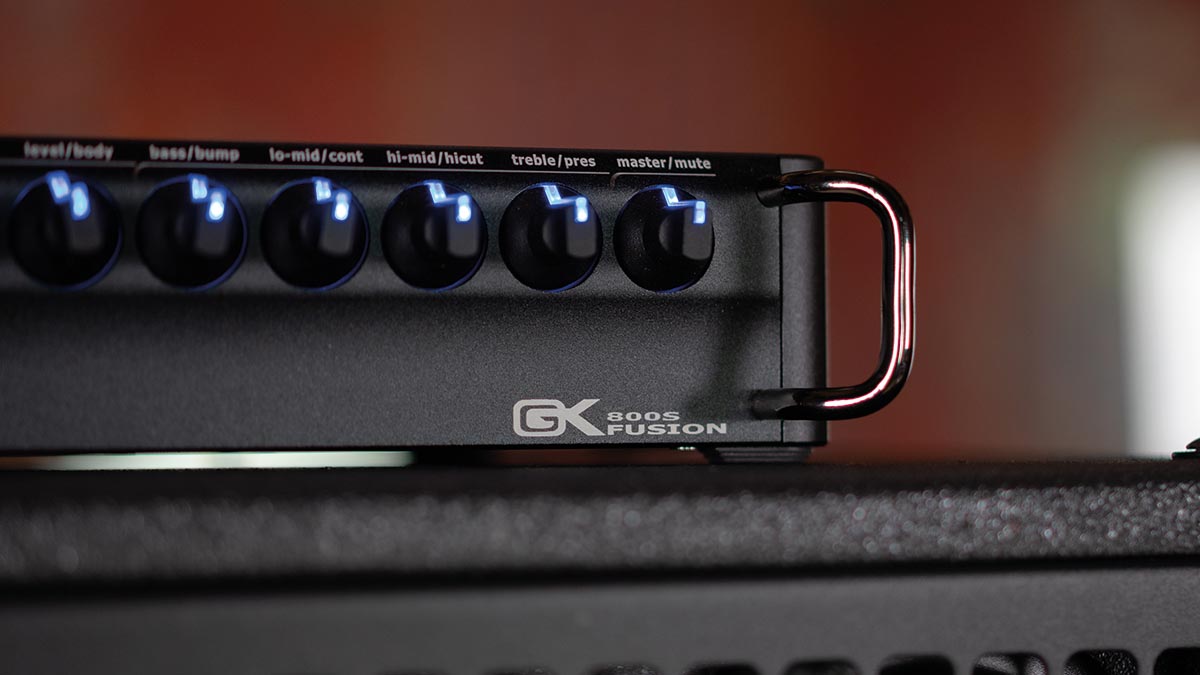Guitar World Verdict
The cost is relatively high, but this rig is an investment, because this setup is one that is built for the ages, physically and sonically.
Pros
- +
Comprehensive EQ options.
- +
Lots of power and output.
- +
Lightweight.
Cons
- -
Pricey.
You can trust Guitar World
In the eternal struggle of getting killer tone versus breaking your back to make the gig, hybrid bass amps have been turning the tides of war.
One of Gallien-Krueger’s latest pieces of artillery is the Fusion 800S head, which brings together the best of both worlds with a preamp featuring three 12AX7 tubes matched to an 800-watt Class D power section. We checked out the Fusion 800S and their NEO IV 410 cabinet.
Build Quality
The head is built with an all-aluminum body that is anodized with laser-etched graphics. The cab, while looking like a tank with its tough coating and metal grille, weighs a mere 63 pounds (29 kilos). Its form and spring-loaded handles make it about as easy to lift as can be expected.
With 10 knobs that all have secondary push functions, this amp might seem a little daunting for some players. It is just a little beyond “plug and play” status, but the control set is much more intuitive than it lets on.
Firstly, an important distinction from most bass amps is the Trim knob, which is not to be confused with gain. Many amps have a -10db pad in order to match up hot or active basses with the amp’s input: Trim lets you set the input level to precisely match the output level from your bass.
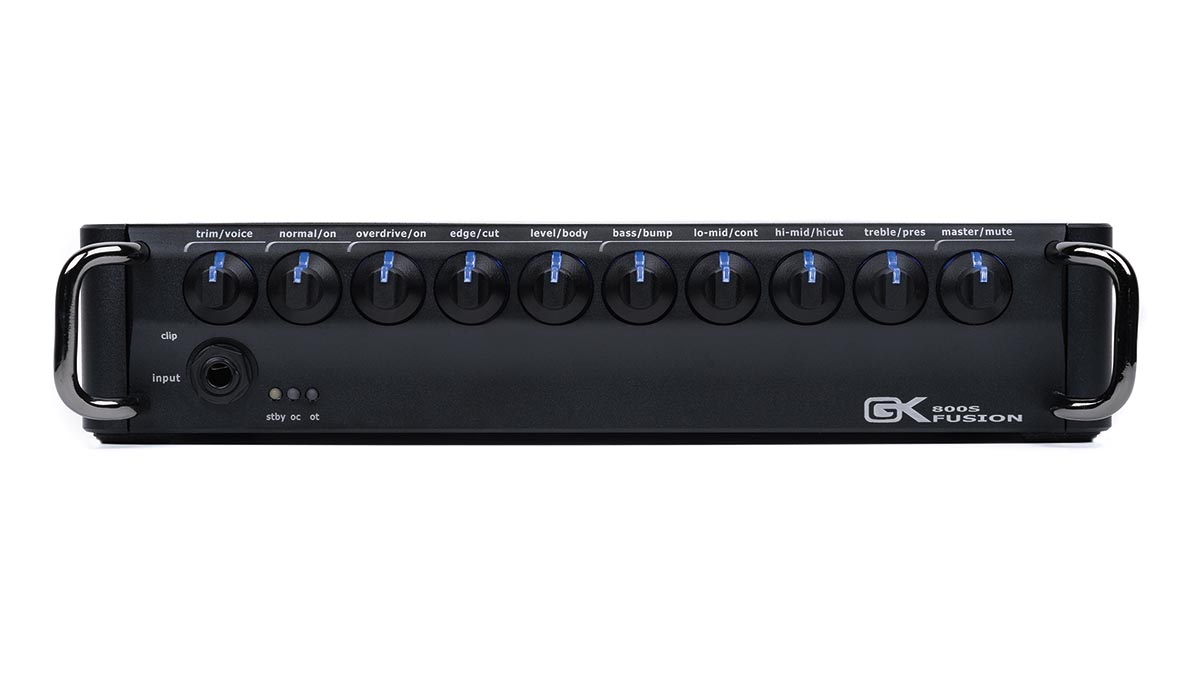
As such, this knob is to be set fully clockwise and then dialled back only when it blinks red to indicate clipping. This is extremely important, as it will affect how your signal hits the rest of the gain staging.
From there, the rotary function of each knob is fairly straightforward. Normal is the normal channel’s volume level, Overdrive sets the amount of overdrive, Edge is the high-frequency response of the overdrive channel, Level sets the overdrive channel’s volume. After that there’s a four-band EQ followed by the master volume.
All the latest guitar news, interviews, lessons, reviews, deals and more, direct to your inbox!
The push-button functions of each knob engage settings, rather than a whole other parameter to adjust. This begins with pushing the Trim knob to activate the Voice filter, which revoices the amp’s sound for a more aggressive tone.
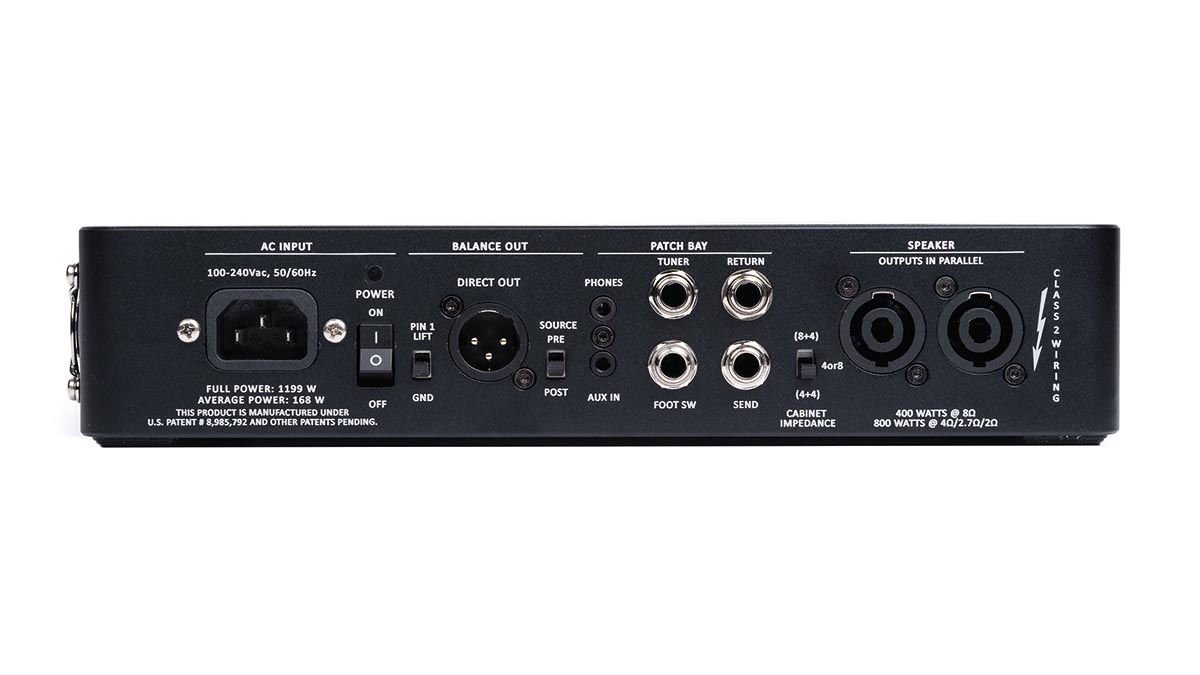
As such, I found this to be the “instant G-K tone” button. Pushing the Normal or Overdrive buttons switches to that channel, while the next two pushbuttons, Cut and Body, are filters to sculpt the drive channel highs and lows.
Next are Bump (a low-end enhancement), Contour (a mid-scoop), Hi-Cut (uh... a high cut), and Presence (a high boost). Finally, the Master volume doubles as a mute switch. Each setting is displayed by a white light on the knob, turning to a pleasant hue of blue for a quick visual check of your settings.
The rear of the Fusion 800S is similarly loaded with all the features you’d expect: a DI, a headphone output, an auxiliary input, a footswitch jack, a tuner out, an effects loop, and dual twist lock speaker outs. There’s also a handy switch for setting the impedance to match your cab setup between 2 ohms, 2.7, 4, or 8 ohms. Each setting dishes out 800 watts, but connecting a single 8 ohm cab will reduce it to 400 watts.
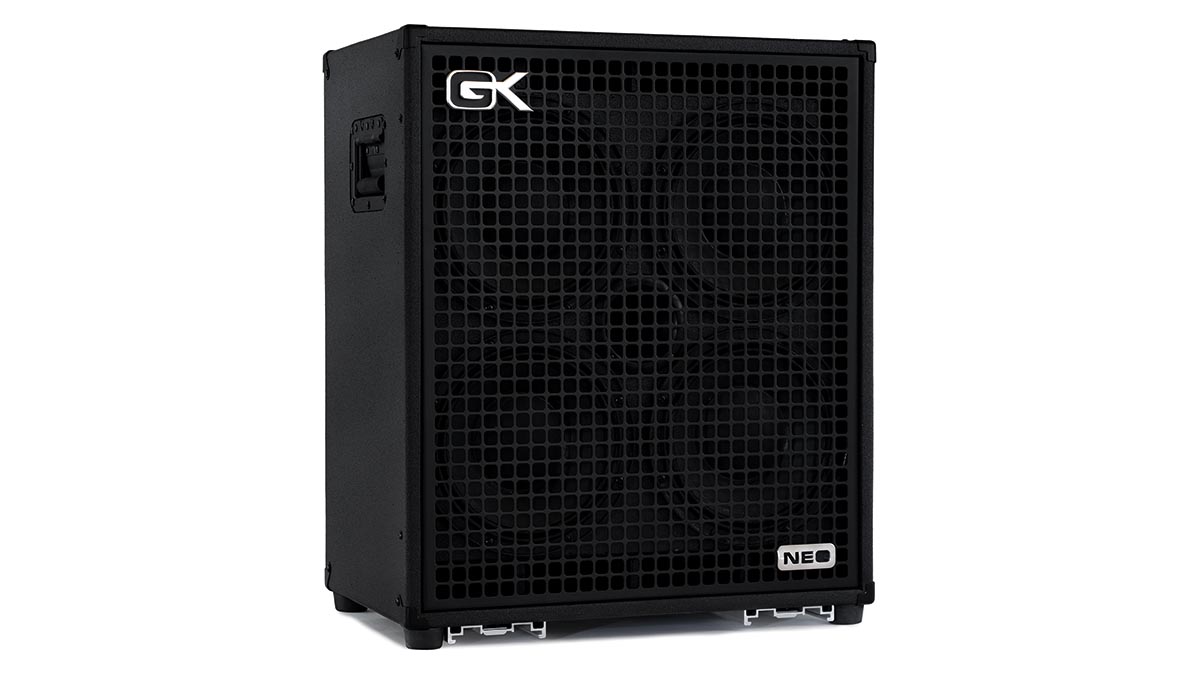
Sounds
The head and cab may be lightweight, but the sound is not: this rig delivers the huge, clear tone for which G-K is known. Engaging the Bump filter adds gut-rumbling lows: An extra-girthy sound that will fill out even the deadest of rooms.
Although the G-K sound is easily had, the Fusion 800S has so much more to offer. Whatever my basses wanted to do, this rig was there for it.
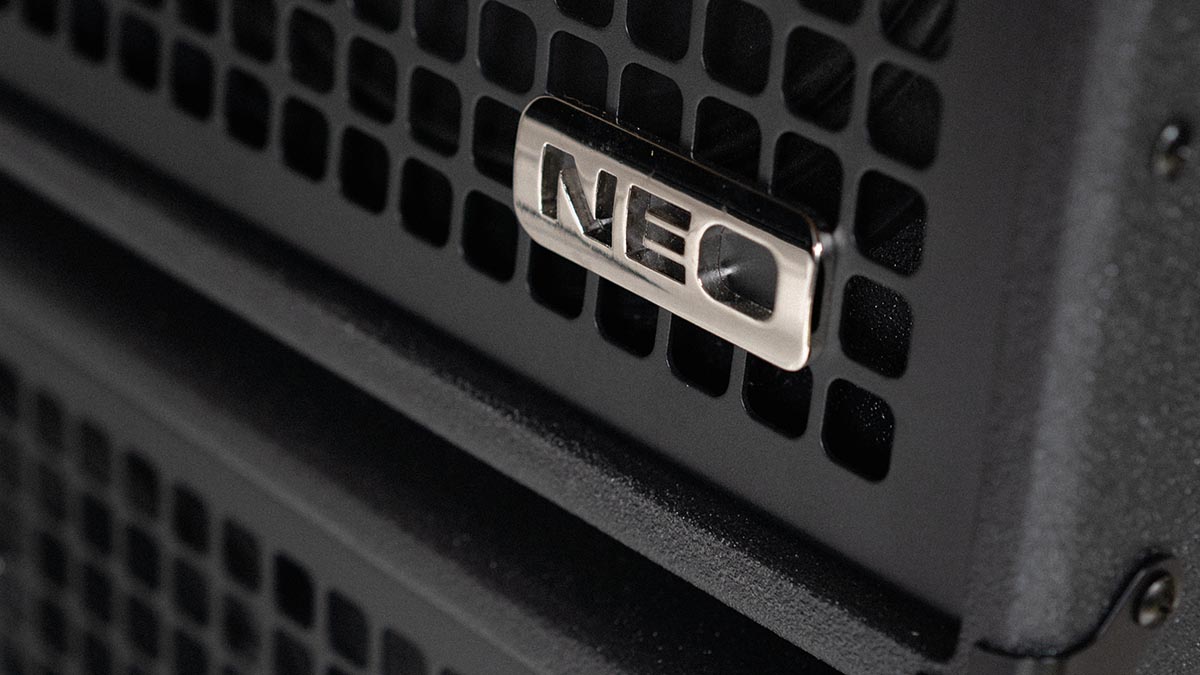
Testing it with a Sire Marcus Miller V7, the amp quickly fell into a round jazz tone. The contour filter puts you into prime slap territory by cutting the mids, but also boosting the highs and lows to keep an even volume level.
Similarly, I could quickly dial in some old-school sounds with a short-scale Reverend Wattplower by pulling back the already beefy lows and dialling in the mids. The presence filter easily accentuated the singing high register of a Marleaux Consat for gorgeous chords.
The overdrive section, as Bob Gallien states in his own demo, is not meant to replace the colors of a overdrive or distortion pedal, but to “give you the feel of an amplifier at its limit”.
I found that to be true, with a warmer, more organic drive. The intelligent flexibility of the Cut and Body switches helps to sculpt it more than just driving an amp would. The top end helps to cut through a dense mix, but if it’s too harsh for your liking, the filters quickly tame the highs.
After you get the hang of how the knobs and buttons interact, this rig is a total blast. It has its own character – several, actually – but it’s so versatile that it will reinforce whatever sound you’re going for.
Specs
Gallien-Krueger Fusion 800S
- PRICE: $1249
- MADE IN: USA
- POWER: 800 watts
- FEATURES: Tube preamp with three 12AX7s, four-band EQ, footswitchable tube overdrive with tone control (footswitch included), Voicing filters (Voice, Bump, Contour, Presence), balanced XLR output with Pre and Post EQ, unbalanced 1/4” send and return, Aux input, headphones output, twist-lock speaker outputs, switchable impedance (2, 2.7, 4, 8 ohms)
- WEIGHT: 5.5 lbs
Specs
Gallien-Krueger NEO-IV 410
- PRICE: $1399
- MADE IN: USA
- POWER: 1000 watts
- FEATURES: 4 x G-K-manufactured neodymium 10” woofers, Paragon horn, 1” P-Audio high-frequency compression driver, response 40 Hz to 18 kHz
- WEIGHT: 63 lbs
- CONTACT: Gallien-Krueger
